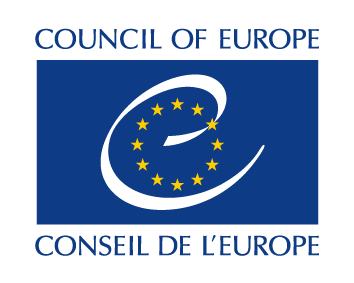1. Education for a Connected World 2020 is a framework created by the UK Council for Internet Safety that aims to equip children and young people for digital life. It integrates guiding principles of the Recommendation such as appropriate use of digital tools, reliable information, participation skills, knowledge of rights and responsibilities, secure technical infrastructure.
2. UK Digital Strategy 2022, developed by the Department for Digital, Culture, Media & Sport, outlines plans for the digital transformation of UK’s economy. In particular, Chapter 3 focuses on digital skills and talent and discusses strategies that could be employed to boost digital skills. The design of this strategy integrates guiding principles of the recommendation, for example increasing access and use of digital technologies, enhancing digital skills and secure online platforms.
3. Online Media Literacy Strategy 2021 developed by the Department for Digital, Culture, Media & Sport. The goal of this strategy is to ensure that every internet user is equipped with the necessary skills and knowledge for online safety, such as understanding the risks of sharing private information online and the ability to decipher information found on the internet and differentiate between fake news and genuine news. It also embeds principles of the recommendation, for example increasing access to digital tools, developing critical thinking skills and enhancing digital literacy among UK citizens.
4. Online Safety Act 2023 by the UK Parliament establishes a new legal framework aimed at making internet services safer for individuals living in the United Kingdom. This Act imposes duties on tech companies to reduce the risks of illegal and harmful content on their platforms especially for children, by ensuring services are safe by design and protecting individuals’ rights such as freedom of expression and privacy while on the internet.
5. Media literacy is taught across the curriculum in England as follows:
- relationships education (compulsory for all primary pupils)
- relationships and sex education (compulsory for all secondary pupils)
- health education (compulsory for all pupils in primary and secondary state-funded schools)
- Citizenship (compulsory at key stages 3 and 4 in maintained schools)
- Computing (compulsory at key stages 1-4 in maintained schools)
6. In addition to what is contained in the national and wider school curriculum, it is worth highlighting content required in public qualifications. For example, in GCSE Citizenship Studies, students are taught about and assessed via examination on: the role of the media and the free press; and how digital democracy, social media and other measures are being developed as a means to improve voter engagement and the political participation of citizens.
7. The Department has published guidance for schools as follows:
- statutory safeguarding guidance ‘Keeping children safe in education’ (KCSIE) provides schools and colleges with robust information on what they should be doing to protect pupils and students online.
- non-statutory Teaching Online Safety in Schools. This non-statutory guidance was last updated in 2023 and outlines how schools can ensure their pupils understand how to stay safe and behave online as part of existing curriculum requirements.
- Educate against Hate hosts a series of online media literacy resources, which seek to help young people evaluate the validity of information.
8. The new government has established an independent Curriculum and Assessment Review led by Professor Becky Francis CBE. The Review seeks to ensure that the curriculum, assessment system and qualification pathways give young people the knowledge, skills and attributes they need, including digital, communication and life skills. Subject specific adjustments in primary and secondary education including subjects such as Citizenship, English and Computing where opportunities for DCE are most likely to exist, would only follow any decisions once the review panel has completed their work. The DfE is also currently carrying out further engagement on the Relationships, Sex, Health Education statutory guidance which currently includes aspects of online safety and media literacy. Children’s wellbeing is at the heart of this guidance for schools and, as such, the government will look carefully at the consultation responses, discuss with stakeholders and consider the relevant evidence, before setting out next steps. The government intends to legislate so that, following the Curriculum and Assessment Review and the implementation of reforms, academies will be required to teach the new national curriculum, alongside other state-funded schools. This will give parents certainty over their children’s education.
9. Ofcom Three Year Media Literacy Strategy 2024. The development of this multi-year strategy is driven in part by new responsibilities outlined in the Online Safety Act 2023 (OSA). The OSA has provided greater clarity and specificity to media literacy duties as originally set out in the Communications Act 2003. These duties include:
Building awareness
- Ofcom is to heighten public awareness and understanding of how people can protect themselves and others online.
- Ofcom is to focus on groups disproportionately affected by harm, including women and girls, and help users understand and reduce exposure to mis and disinformation.
- Ofcom has discretion on how to meet these duties (for example, pursuing activities and initiatives, or commissioning or taking steps to encourage others to do so) and how to prioritise different objectives.
Encouraging technology and systems
- Ofcom is to encourage the development and use of technologies and systems so that users of regulated services can protect themselves and others online (e.g., such as providing context to content).
- Ofcom is to signpost users to resources, tools or information that can raise awareness about how to use regulated services to mitigate harms. Publishing a media literacy strategy and annual statement
Publishing a media literacy strategy and annual statement
- Ofcom is required to publish a media literacy strategy which sets out how we propose to exercise our media literacy functions, stating our objectives and priorities over a period not more than three years.
- Ofcom’s annual report must contain a media literacy statement on the work. Specifically in relation to education, Ofcom is currently examining continuing professional development in order to evaluate and share best practice.
Sources
- https://assets.publishing.service.gov.uk/media/5efa05b4e90e075c5492d58c/UKCIS_Education_for_a_Connected_World_.pdf
- https://www.gov.uk/government/publications/uks-digital-strategy
- https://www.gov.uk/government/publications/online-media-literacy-strategy
- https://www.legislation.gov.uk/ukpga/2023/50/enacted
- Online survey with national authorities
- Online survey with national authorities
- Keeping children safe in education
- Teaching Online Safety in Schools
- Educate against Hate Curriculum and assessment review – GOV.UK Ofcom Media Literacy Strategy



